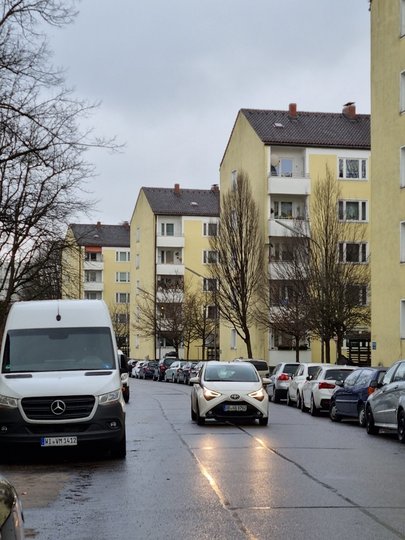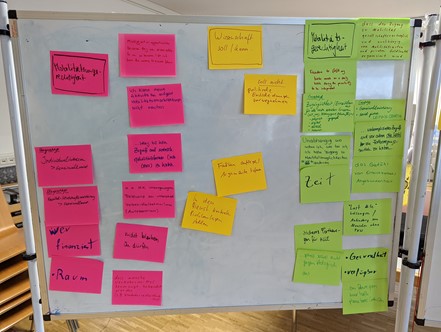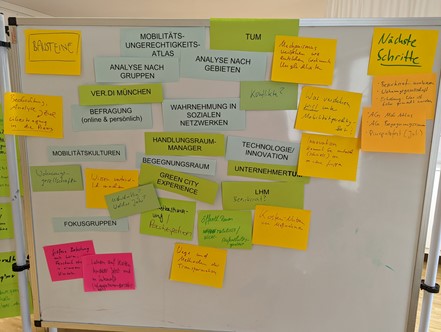Is it fair that shared mobility is mainly used by men, is it fair that cycling is mainly used by highly educated people, is it fair that neighbourhoods with a high proportion of migrants have less access to basic needs? Who can participate in mobility decisions, who can afford to be mobile? These are exemplary questions that TUM Chair of Transport Planning and Urban Structure and TUM research group Innovation, Society and Public Policy (ISPP), together with Green City Experience, Unternehmer TUM; City of Munich – Department of Urban Planning and Building Code, Ver.di. want to explore in our Mobility Justice in Metropolitan Regions (MGeM) project – Mobilitätsgerechtichkeit in Metropolregionen.
On the 18th of January 2022, MGeM partners came together to discuss project milestones and their involvement within the project. The project partners met in person in one of the project’s study areas in Munich – Berg am Laim. The 4-hour meeting started with a neighbourhood walk, guided by district manager Robert Kulzer, which allowed the participants to familiarize with the local surroundings and discuss aspects of as well as challenges related to mobility.
Afterwards, all partners sat down to brainstorm on content related issues such as their understanding of mobility (in)justices at the city and metropolitan level. Sharing our diverse perspectives on mobility justice allowed for creating a baseline for mutual understanding in a transdisciplinary team. Furthermore, this fruitful exchange shed light on the expertise each partner brings on board. Eventually, a discussion on the division of tasks and responsibilities to fulfil the project plan took place. Possible collaborations and future workshop ideas were laid out within the last round of discussions.
During the first year of the project implementation, the Chair of Transport Planning and Urban Structure will be working hands-on in the assessment of mobility (in)justices in the metropolitan region of Munich. Firstly, we will investigate which social groups have privileged access to or availability of different mobility offers and whether transport use behaviour differs among social groups. The result of this will be a Mobility (in)Equalities Atlas which will show spatial disparities among social groups at the level of counties and districts in the metropolitan region.
In a second step, we will examine in more detail the mobility cultures that shape people’s lives in the area around Piusplatz, Berg am Laim – a culturally diverse area with a high percentage of social housing. Such areas and questions concerning social justice often go under the radar of mobility innovation research. Hence, key to our research around Piusplatz are participatory formats that allow for experimenting with different approaches to mobility justice. Through an interdisciplinary mixed-methods research design including surveys, interviews and focus groups we furthermore seek to better understand local mobility cultures and their connections to mobility justice.
Finally, to quote a sentence from the workshop ‘Good mobility is what society can afford, not what the individual can afford'.


